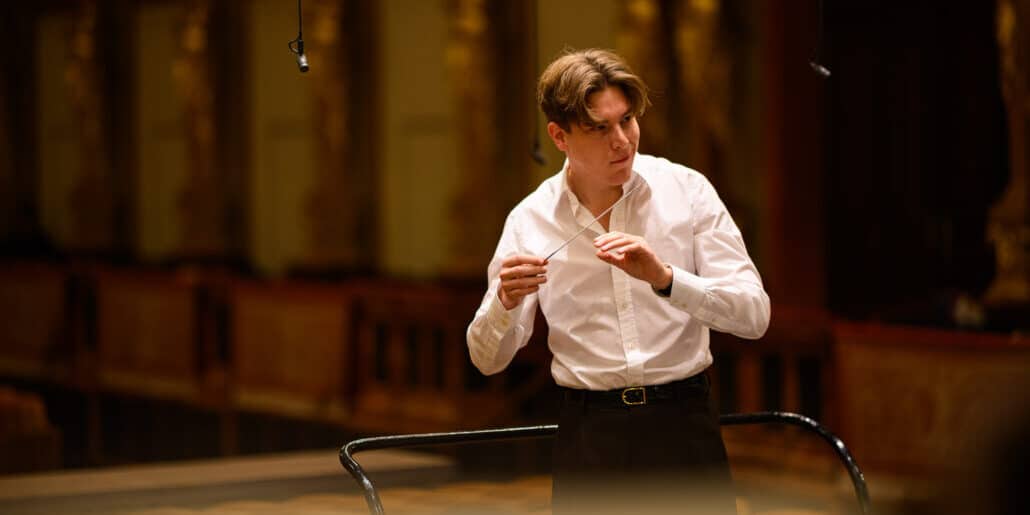Why rigged competitions are not victimless crimes
mainA few days ago we received a complaint from an Asian contestant that a well-known professor on the jury of an international competition in Europe had given top marks to his own son.
Without shame. As a matter of routine.
This happens all the time.
Zakhar Bron is a notorious giver of high marks to his pupils, who are also promoted by his own agency. When they win, so does he – three times over.
Boris Kushnir is another known offender for advancing his own proteges.
Who cares? We do.
Competition fixing is not a victimless crime. At the nepotistic contest cited above, 74 hopefuls had paid their way to a fashionable and expensive European location in the hope of winning a career boost. When the competition is rigged, the money they spent is effectively stolen from them by corruption.
Those who care for young artists, as one Shanghai judge told me he did, must be aware that young artists and their families are being ripped off every time they enter a fixed competition.
There is a simple solution: Judges cannot be allowed to vote for their own pupils. And teachers should be heavily outnumbered on juries by non-teachers.
We commend those competitions which have cleaned up their act: Tchaikovsky, Chopin and Enescu, for instance.
And we will continue to call out every known instance of teacher-pupil collusion, until the practice stops.






Bravo! And thanks again for calling out the mob, Mr. Lebrecht!
Never heard of the Honens being rigged.
You are absolutely right there Norman and I have nothing but sympathy for those who are being ripped off by a corrupt system, but if this ultimately leads to the end of the competition circuit, that will be not such a bad thing.
One could make the EXACT same argument for Labels that pick people for their looks, orchestras that hire musicians and soloists from the label/agency of their lusic director, and blogs that boast of their lack of bias but constantly push their favorites and trash their “blacklisted”, mhhh now what blog would that be?
In ALL of these cases, cliques and friendship comes first, actual talent goes last.
But some people need to feel good about themselves, so yeah…trash competitions…
With respect I don’t agree. They are not so similar. A competition winner immediately comes to the attention of a variety of agents and managers. They may already be known in the profession, but suddenly the winners are in the limelight and therefore more bankable artists – for a short time. Some competitions also give valuable exposure through guaranteed concerts. That window of opportunity is denied most other participants.
Nick, I am sorry but seriously: which of the top 100 artists came to the limelight because of competitions? Trifonov? Who else?
Look at the agencies rosters, its a parade of whoever slept with X or Y, or whoever has the craziest haircut or tells the best jokes. ITS ALL incestuous. These are the people that then get paraded in the orchestras and record labels for their 15 minutes of fame.
Then certain blogs look at all the rubble, pick favorites, and pretend to be altruistic, when they contribute to the decadence.
The entire industry is – ironically – the most pernicious force against music there is. Then you have the collection of “musicians’ musicans” that populate the second tier agencies and only really play for their colleagues.
The rest, teach…..and judge competitions.
When will we have the Norman Lebrecht International Competition in Music Criticism?
San Francisco Conservatory hosts the “Rubin Institute for Music Criticism” (formerly at Oberlin), which “culminates with the awarding of the $10,000 Rubin Prize in Music Criticism to one participating student writer for demonstrating outstanding promise in music criticism.”
https://www.sfcm.edu/performances/rubin-institute/2016/rubin-prize-in-music-criticism
If you hadn’t provided the link, I would have said that you are quoting from The Onion.
The good news is that cream always rises to the top: The majority of contest winners end up sitting at home polishing their trophies and with their prize money long spent – wondering why their careers never materialized. But at the end of the day, you can’t fool the conductors – who for the most part select soloists for their ability to make music, and don’t care which (or how many) contests they’ve won. Yes, a prize might get you your 1st performance with a conductor – but if he’s disappointed with you, he won’t invite you back, and he’ll also make sure his fellow conductors know that you’ve disappointed him — so in fact your prize killed your career before it even got off the ground. Careers are made by true musicians, not contest-winners.
Yes, I think that’s right…and I believe we would still have got to enjoy the brilliance of Martha Argerich, Gidon Kremer, John Ogden and quite a few more if there were no competitions for them to win. Music is not a sport.
I wonder, is that why Harnoncourt recorded with Lang Lang?? Because you cant Fool conductors? Because somewhow people will be altruistic and managements/labels/orchestras/etc’s private agendas will be set aside in the name of the goddess of music?
Looks like someone else is the fool around here….
That could just be mutual fascination. Lang Lang’s technical brilliance isn’t really a question, and Harnoncourt may have figured he could do something with someone of such obvious gifts. Meanwhile, Lang Lang, flashy image that may be his trademark, is serious enough to want to have learned something from the great man, and probably was on his best behavior.
25 years ago, a Lang-Lang or a Buniatasvili wouldn’t have stood a chance for success. But since that time, with shrinking audiences and 2-digit sales figures for CD’s & DVD’s, even the best conductors have had these “7-day wonder” soloists forced on them by presenters to sell tickets, and by record companies to sell product. Remember, at the end of the day, Music is simply a business – and it’s a dying business, so these deteriorating conditions have forced everyone to stoop lower & lower in an attempt to survive.
“But at the end of the day, you can’t fool the conductors – who for the most part select soloists for their ability to make music, and don’t care which (or how many) contests they’ve won.”
Sorry, but obviously you haven’t got the faintest clue.
La Verita: if you insert the phrase “in bed” into a few spots in your comment, it might reflect reality a little more accurately 😛
Not voting for own students is just a partial solution. Because they can still vote for others. After the first round the jury has a relatively clear picture of the contestants (let’s hope so) and they know exactly which young musicians should they give very low marks in the next round to get rid of the main rivals. Not to mention the fact that there are always a few “bodies among the jury members in this dirty business of competitions and master classes which are being based on “exchange tourism “.
Right. Teachers shouldn’t have a student in the competition. Or teachers shouldn’t be jurors.
I’m not sure I would include the recent Tchaikovsky in the ‘fair’ category. Especially not the violin section.
Agreed. Three 3rd place winners and one second place winner with no grand prize at the last competition looks suspicious to say the least. I’d also like to point out that the top violinist was Asian American…
Enescu is a clean competition? One of the three finalists was indeed a pupil of Pierre Amoyal, the president of jury.
That is true. And regardless, he never should have been one of the 3 finalists, at least in my opinion.
There was also a case of one of the violinists, not a finalist, taking a lesson, just as the competition was beginning,with someone in Bucharest who’s teacher was on the jury. Is that dirty pool? I can not say for sure. Nevertheless…..
The sad thing is that the winner of a rigged competition may actually deserve to win; but will be stigmatized (at least in some circles) by the win.